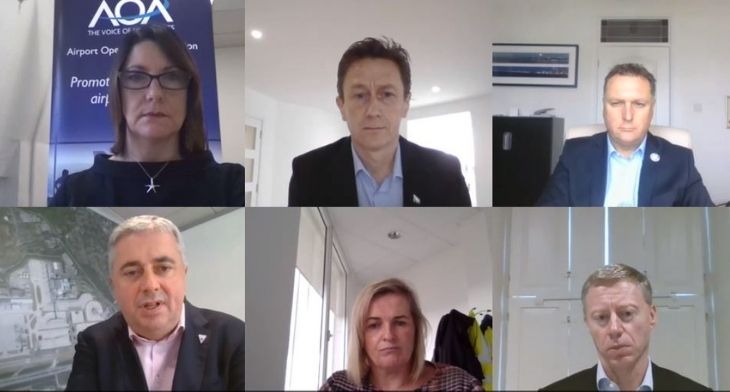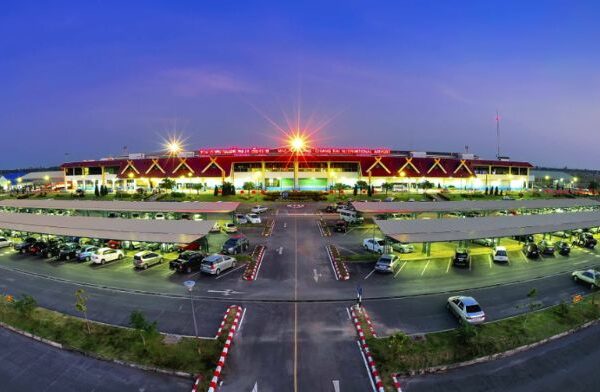


It would seem that for aviation (and the world at large), hope is finally on the horizon following promising news on the COVID-19 vaccine front. Pfizer and its partner BioNTech’s announcement that early study results indicated their vaccine was more than 90% effective in protecting people from the virus that causes COVID-19, sent airline stocks soaring. Eurocontrol’s Director General, Eamonn Brennan, described the vaccine breakthrough as “encouraging”, saying it “could have a huge impact on aviation”.
Speaking at the Airport Operator Association’s (AOA’s) AGM on Monday 9 November, the UK Transport Secretary, Grant Shapps, stated that, “The primary solution has to be getting passengers flying again safely, ideally through a vaccine, but before that through effective testing.” He also committed to a new ‘test and release’ scheme for UK airport operators that will start once the nation’s current lockdown is over (2 December) to allow a “much reduced period of self isolation” for those arriving in the UK. “Beyond the lockdown,” he said, “this should encourage people to book flights with confidence.”
Referencing the critical role that the UK’s regional airports play both in the country’s economic recovery and in providing regions with an identity and a sense of pride, Jim McMahon, Shadow Secretary of State for Transport, argued that “Government must do more to support these vital hubs.” He also underlined there hasn’t been enough cross-governmental support between European countries, as he stated that: “Frankly, the UK Government has been too late in coming to the table on this and leading the way especially for airports.”
Robert Sinclair, CEO of London City Airport, described current quarantine regulations as a “patchwork quilt of travel restrictions that are crippling the industry”. However, he was also cautiously optimistic about the future, saying: “Demand is there for air travel, we saw that in July when travel restrictions were relaxed… But harmonised departure protocols must be put in place.” Rob Bishton, Director of Safety and Airspace Regulation at the UK’s Civil Aviation Authority, agreed that until a vaccine is in place “testing is the progressive solution that can be used to avoid repeating the same problems for aviation next year as we’ve had this year”.
Meanwhile, Karen Smart, Managing Director at Manchester Airport, said that not enough support is being offered to airports. “They are high cost businesses. You can’t just furlough staff, shut the doors and say costs have gone away. But our government has failed to recognise that and provide adequate support.”
Gatwick’s CEO, Stewart Wingate, gave a nod to the need to ‘build back better’ with a sustainable aviation industry. “We want to see increased production and supply of sustainable aviation fuel, and we want to work alongside government in developing clear strategies for the use of hydrogen and electric technologies.” Echoing this message, Derek Provan, CEO at AGS Airport Group (which owns Aberdeen, Glasgow and Southampton airports), also believes that the industry will grow and build back better as we start to focus on the future.
The messaging was similar at the African Airline Association’s (AFRAA’s) AGM, where Ali Tounsi, the Secretary General for Airports Council International (ACI) Africa said that overall passenger traffic in 2020 will be down 60%, costing the industry US$2.6 billion. He urged local governments to support their airports and alleviate the financial impact of the pandemic through measures, such as waiving airport concession fees, providing loans and grants, as well as tax relief for the aviation sector and help with the cost of public health measures in airports.
Tounsi also called for wider collaboration and cooperation between airports, airlines and regulators. “They must be united in their view that a consistent approach to testing passengers is key to restoring passenger confidence, as well as preventing border closures and quarantine restrictions that have slowed Africa’s aviation recovery.” While contactless solutions involving biometric and self-service technology will be integral to the future of African airports and reducing the risk of virus transmission, the cost of rolling out new technologies in this area will be prohibitive for some airports and especially Africa’s smaller regional hubs.
However, like his European counterparts, Tounsi concluded: “I remain positive about the future. Airports are vital to aviation’s ecosystem and they will play an integral role in the global economic recovery.”
Much of 2020 has been a tale of two halves. It’s been about battening down the hatches to survive the storm, but also about resilience and optimism that once this pandemic is over the industry will recover as quickly as it can, so long as the appropriate measures are in place.
Have a great weekend,
Chloë Greenbank
Editor, Regional Gateway
Header image: From right to left – Karen Dee, AOA; Rob Bishton, CAA; Derek Provan, AGS Group; Stewart Wingate, Gatwick Airport; Karen Smart, Manchester Airport; Robert Sinclair, London City Airport.





